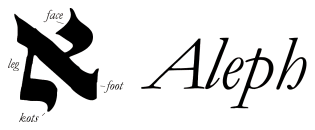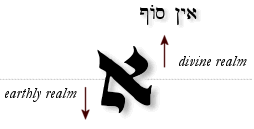Ancient Baby

*
The phrase I quoted from Basho in yesterday's post has been running through my mind. Basho said that he "felt the breezes from the afterlife cross [his] face.” It's certainly a haunting image of mortality, but what I've really being trying to get my head around is how the words of people from past times seem to reflect that our sense of reality hasn't changed. Am I 'contemporamorphizing' it? When I read a passage from an ancient Greek, many times it seems that our sensibilities aren't that different, despite mortgages, space travel, nanotechnology, and the human genome project. Could that be true? We'd certainly have a completely different notion of human rights (race, and gender for example) and many many other things, but is there something fundamental that we'd share? It seems obvious to state this, but it is mindboggling that while culture and human experience have changed, some fundamentals seem not to have, the 'what it is to be human' cliche. Or is our difference sense of ourselves, of being, masked by our language traditions, our cultural assumptions?
However, I'd expect that if I raised an ancient baby in the modern world, they'd be indistinguishable from a modern baby. As long as they have modern diapers, I'd say to myself, as long as they have modern diapers.
*
This is a fascinating discussion of the origin, symbolism, and function of the first letter of the Hebrew alphabet, the silent Aleph. Here are some passages from this site:
There is a midrash (fable) that asks why Aleph was not selected to be the first letter of the Torah (the Hebrew Bible). In the story, all of the letters come before the LORD giving reasons why they should be the first letter - all, that is, except for the letter Aleph. When the LORD asked why, Aleph explained that since he was silent, he had nothing to say. But the LORD honored Aleph’s humility and declared him to be the first of all the letters -- and to be honored as the letter of the first word of the Ten Commandments.
 Mysteries of Aleph
Mysteries of AlephIn Kabbalistic literature, the upper Yod (meaning an arm) represents the hidden aspect of YHVH, (ein sof - “without end”), whereas the lower Yod represents the revelation of YHVH to mankind. The Vav, whose meaning is “hook,” shows connectedness between the two realms. Vav is also thought to represent humanity, since Adam was created on the sixth day. Vav is diagonal since it is humbled in the face of God’s mystery and His revelation. The two Yods also indicate the paradox of experiencing God as both hidden and close, far and near.
*

Comments
Still, we theorize how our notion of self has changed. Probably our notion of self is sedimentary. It exists on many different layers simultaneously. I try to imagine how it might feel experientially to be an ancient Briton, a caveman, or an accountant. It is hard though to think about how thinking might be different.
Rabbi David of Lelov once heard a simple man who was praying by saying the name of God after every verse. The reason he did this was that there are two dots one above the other at the close of each verse. The man took each to be the tiny letter Yud or Yod, and since the name of God is sometimes abbreviated in the form of two Yuds, he thought that what he saw at the end of every verse was the name of God.
The zaddik instructed him: "Wherever you find two Jews [Yuds] side by side and on a par, there is the name of God. But whenever it looks to you as if one Jew [Yud] were standing above the other, then they are not Jews [Yuds] and it is not the name of God."
cheers
Hugh
Whassisname Jaynes (the guy who wrote the Breakdown of the Bicameral Mind) thinks, based on analysing books like the Iliad, that there's been a massive change in how we conceive of self. A sea-change, I guess. A winedark sea-change. But Jaynes usually gets more credit for imaginative vision than scientific accuracy, from what I've read.